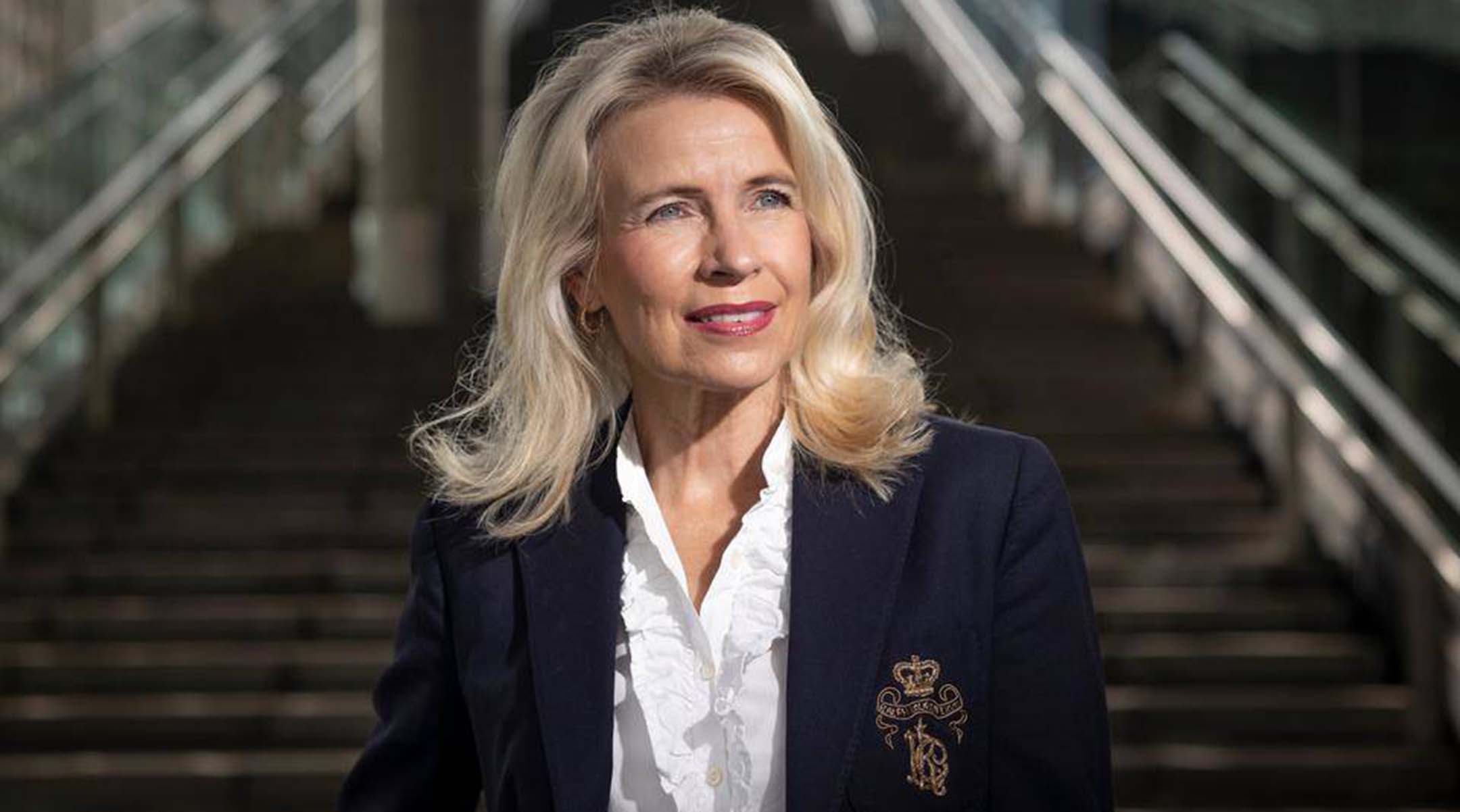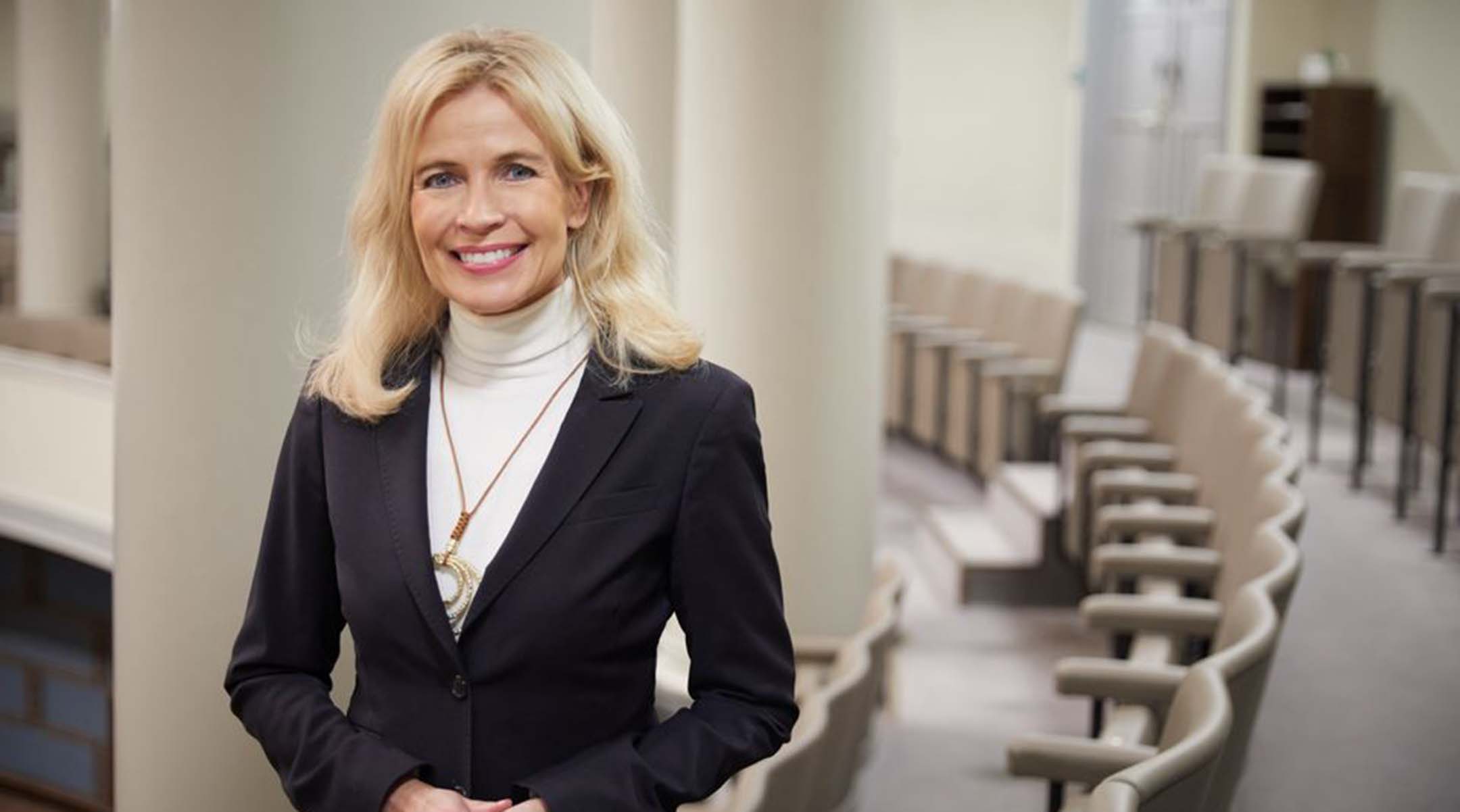The Winter Session of the OSCE Parliamentary Assembly in Vienna on February 22-23 was held without Russia, which decided not to attend, recalling how "warmly" they were received last year. And this significantly influenced the atmosphere of the meeting and contributed to its constructive work, including toward further support for Ukraine.
As stated at the session opening by OSCE PA President Pia Kauma (Finland), who was elected last summer – Russia’s move came as no surprise and only confirms that the Assembly's efforts to hold Russia accountable for its war against of Ukraine are rightful. She said the OSCE Parliamentary Assembly would not serve as an unimpeded platform for spreading propaganda and promoting a war of aggression.
Despite the busy schedule of meetings and sessions, Ms. Kauma agreed to a blitz interview with Ukrinform's own correspondent in Vienna and commented on the absence of the Russians in the Assembly hall and the suspension of their membership, the impressions of her recent trip to Ukraine, as well as the work of "Putin's interpreter" in the international secretariat of the OSCE PA.

WITHOUT RUSSIA, THE ATMOSPHERE WAS SLIGHTLY MORE RELAXED
- Madam President, the Russian delegation was absent from the OSCE PA winter session. How did this influence the atmosphere of the session compared to last year's event where the Russians were present despite strong protests from many delegates including those from Ukraine?
-Yes, that is correct, exactly one year ago we had the Russian delegation present at the Winter meeting. So I think the atmosphere of this year’s conference, with the absence of the Russian delegation, was slightly more relaxed.
However, it doesn't change the fact that Russia is still waging war against Ukraine. And most of the speeches and interventions made by members of parliament today touched upon this issue.
I would imagine that, had the Russian Federation's delegation members been here today, maybe the words might have been even more harsh.
But now many of the delegates talked about the OSCE PA's possibility, as an organization, to prevent these kinds of things from happening in other countries and in the future, and also about the tools and mechanisms that we have and that we need to renew in order to prevent that kind of happenings in the future.
So, had there been any Russians present, I suppose there would have been more protests against them. Maybe some Ukrainian flags also would have been shown on the tables. That's what happened last year. And when the Russian delegates spoke, there were delegates from other countries who left the room – that kind of protests.
That is what we didn't see this time. So members of the delegations concentrated on the issues as such.
- I remember one Latvian delegate was very emotional last session…
- Yes.
- Did you see any so-called Ukraine war fatigue among the delegates at the latest session?
- Not necessarily war fatigue, but there have been some delegates who have approached me in order to emphasize that there are other potential crisis areas also in the OSCE area. And also, when it comes to relations between Armenia and Azerbaijan, for example, the dispute between the two countries continues as it has continued over the past few years. That only proves that there are many other areas also in the OSCE region that call for our attention, not just Ukraine.
But I wouldn't really call it fatigue.
- The head of the State Duma of the Russian Federation, Vyacheslav Volodin, said that by 21 February, both chambers of the Russian parliament would decide to suspend Russia's membership in the OSCE Parliamentary Assembly. However, they never did. Why do you think they did not make the decision? Did the Russian side send an official letter to the OSCE PA Secretariat informing it of membership suspension and, if so, for what period of time?
- Yes, this topic was discussed and debated quite a lot right after the Russia's full-scale invasion of Ukraine. It was the main topic. Many of the delegates were of the opinion that Russia should be either expelled or at least suspended from all the activities of the OSCE PA.
But then the reality hit us quite hard because, according to our rules of procedure, it is not possible to suspend, or not to mention expel, a member country unless there is consensus minus one. And there seemed to be more than just Russia who would have opposed that.
There are a few countries who were of the opinion that, regardless of what was happening on the Ukrainian territory at that time and still at the moment, Russia should not be suspended because it would be against the initial idea of the OSCE, which was to bring together countries that basically agree that they disagree on many things.

- The Birmingham Declaration calls for amendments to the Assembly`s rules of procedure, which would also provide the option for the suspension of powers of a national delegation. Do you see maybe it's time to implement this?
- Yes, it is possible to do that. But again, we will fall into the same situation where we were earlier, that we would need to have consensus minus one in order to change our rules of procedure.
- And a follow-up to the previous question. Did the Russian side send an official letter to the Secretariat informing it about suspension?
- I haven't seen the letter, but I have been told that it was about not participating in the Winter Meeting here in Vienna, but not about the future, at least not a long time in the future.
- I would also like to ask you about the presence of Russian nationals in the OSCE PA Secretariat. Doesn't this pose certain risks to the Assembly, including in terms of security? Could you please comment in this regard on the case of Daria Boyarskaya, the head of the OSCE PA Vienna Office, whose name was mentioned by a Latvian MP at the last winter session in the context of Russian espionage?
- Well, the Secretary General has explained to the Standing Committee the procedure according to which she was enrolled, registered to be an employee in the Vienna Office, and that case has been handled already more than a year ago. So we have had no reason to come back to that issue anymore.
SUPPORT FOR UKRAINE FOR AS LONG AS IT TAKES AND WHATEVER IT TAKES
- You made a visit to Ukraine this February. What were your thoughts of the situation and maybe what impressed you the most during the visit?
- Well, I think it is that how brave and courageous the Ukrainian people are, and also how living at war conditions make people get accustomed to them, also bearing in mind that there are shellings, even in the Kyiv area, and that there are air raids at nighttime and even at daytime, and people are really accustomed to that. And sometimes they don't even seek shelter, even though they know that there are some dangerous objects flying in the sky.
- During your visit to Ukraine, you were able to see first-hand Russia’s atrocities. Do you believe that all those involved in war crimes in Ukraine will be brought to justice, including Vladimir Putin personally, for committing the crime of aggression and involvement in the abduction of Ukrainian children?
- It is extremely important that war criminals be brought to justice and held accountable. And this is really a serious matter, and I fully understand the concern of the Ukrainian people that some, or many even, of the war criminals will walk free unless we are vigilant enough and active enough to establish a special criminal court for… war criminals. I think it is extremely important that the people who have committed such atrocities are brought to justice.
And also one of my main messages in Ukraine was that we will support Ukraine
as long as it takes and whatever it takes. We cannot let Russia win this war.
- Do you mean the Parliamentary Assembly?
- Yes.
UKRAINE NEEDS MILITARY SUPPORT TO WIN
- And now my last question. During the opening of the exhibition Living with War, you said Russia's war of aggression must be stopped. We in Ukraine are convinced that this can only be done by increasing military support for Ukraine. What do you think?
- I am afraid Russia is a country that only listens to military power, and that is why I think that Ukraine needs military support in order to win this war.
Vasyl Korotkyi, Vienna
Photo: Lehtikuva, OSCE, SAMI KUUSIVIRTA
